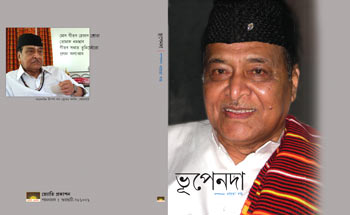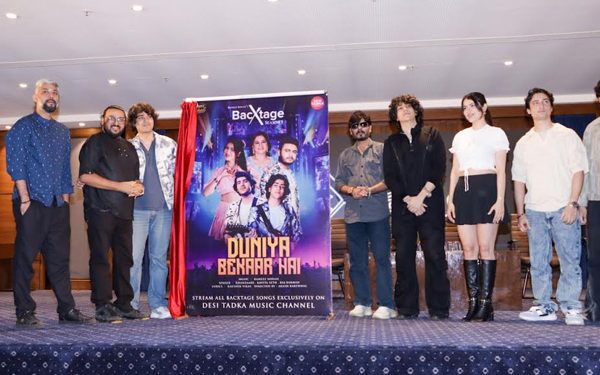GUWAHATI: Bhupen Hazarika is such a phenomenon in the 20th century cultural landscape of South Asia that his appeal remains undiminished across geographical, linguistic and generational divides. Even though he is immediately identified as an Assamese cultural icon, his music has elements of such outstanding universal value that he has effortlessly lifted his creation, craft and persona out of the narrow paradigms of linguistic or regional identity, making it intimately appealing to all; the earthiness and humanism in his music equally heartfelt, regardless of whether one lives on the banks of the Brahmaputra, Padma, Ganga or even Mississippi.
The recent anthology Bhupenda…, as Bhupen Hazarika is known to all, compiled and edited by Namrata Datta is a commendable effort to re-explore this cultural phenomenon.
Bhupenda is an insightful collection of writing, in verses and prose, on Bhupen Hazarika’s music and life by 15 writers spanning three generations. Taffazul Ali and Tarun Kalita in their pieces, incisively explore the finer nuances and influences of Hazarika’s music and lucidly articulate it for the readers. Abhijieet Banerjee recounts how Bhupen Hazarika emerged as a tour de force in Contemporary Bengali Music at a time when the landscape was dominated by such stalwarts as Hemanta Mukherjee, Manna Dey and others and how Bhupen Hazarika held his own even among them. It is no mean achievement that Bhupen Hazarika’s music is still popular even after more than four decades since he emerged on the horizons of Modern Bengali Music.
Utpal Datta draws our attention to an often overlooked but indispensable fact, that Bhupen Hazarika was the first artist from Assam who had the passion and conviction to make music his life and livelihood, and achieve professional success and popularity on a scale hitherto unimaginable. This pioneer has paved the way for many who has found success as artists and musicians outside Assam, particularly in Mumbai. Phanindra Kumar Debchoudhury sensitively explores what Bhupen Hazarika, his creations and his sometimes controversial decisions in life, both private and public, stand for and how they are perceived or ought to be perceived by the masses.
Bipuljyoti Saikia makes a valuable contribution with his piece on Bhupen Hazarika’s presence in the world wide web. Poets Nilim Kumar and Abani Bora’s verses add variety to the collection so does the piece Bhupen Hazarika himself wrote, tenderly recounting the pains and loneliness of an unconventional life. The only note of dissonance is Gouranga Kumar Sarma’s piece casting Bhupen Hazarika in the mould of a brand…, a word which has such direct association to the idea of rampant consumerism in a world seared by excesses of globalization. Bhupen Hazarika’s creative genius appeals to all because it is rooted in the earthy, humane values which are universal. To even try to imagine him as a brand would be to reduce and deny him this universal appeal
Namrata Datta is a broadcaster, journalist, researcher and writer. But more than that, she is a discerning admirer of Bhupen Hazarika and his creative genius. If she has compiled this volume to remind us of Bhupen Hazarika’s timeless appeal and the sheer richness of his legacy, she has splendidly succeeded in her efforts.












